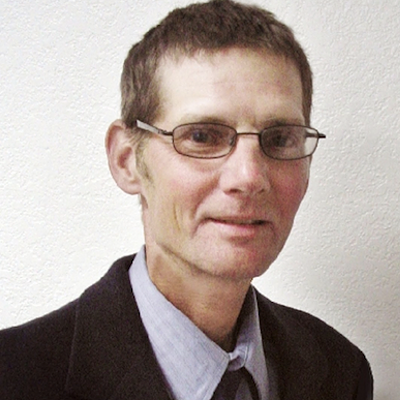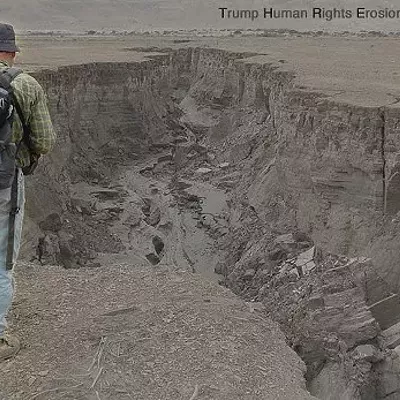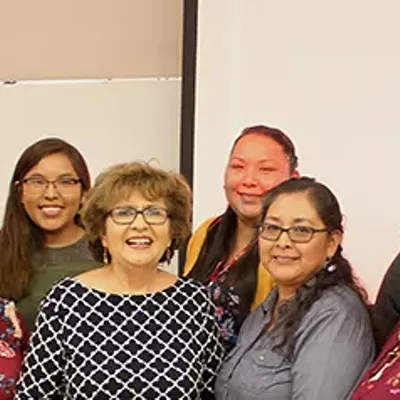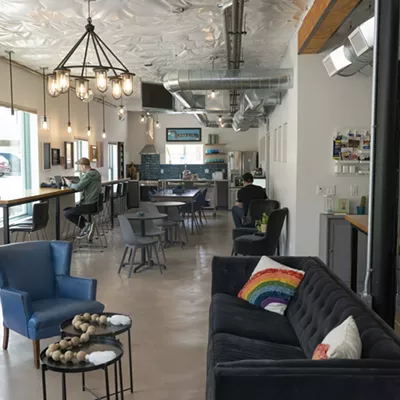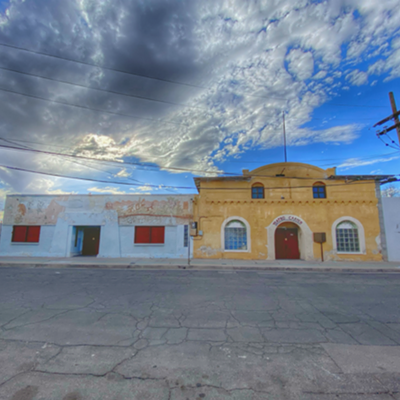It has been almost five decades since Henry Ramon, Vice Chairman of the Tohono O'odham Nation, returned home from the Korean War with his honorable discharge in hand. As he prepared to come home, Ramon was reminded he would have a hard time proving he was a U.S. citizen without legal birth documents.
Ramon, like several thousand other Tohono O'odham, was born on tribal lands within the United States, but without birth documents to help prove his citizenship.
"When I came home from the war, I didn't have a birth certificate," said Ramon. "My honorable discharge from the army wasn't enough to prove citizenship. My papers were only secondary documents. I had my tribal membership papers, but it wasn't enough to prove my citizenship. As far as the government was concerned I was an alien," said Ramon, choking back his tears before a tribal press conference last week.
The Tohono O'odham Nation--the tribe's name means "Desert People"--estimates that about 7,000 out of 24,000 enrolled tribal members find themselves in similar circumstances to Ramon's.
Until the middle of the 19th century, the traditional lands of this desert nation stretched from Phoenix south to Hermosillo, Sonora, and west to the Sea of Cortez.
Then, in 1853, the U.S. established its boundary with Mexico. Now tribal lands north of the border are occupied by the U.S. Border Patrol. The tribe maintains that this situation arose from a series of historical oversights. When the boundary was established in 1853, "cutting the O'odham lands in half, all O'odham should have been forever guaranteed United States citizenship. Since that time, we have become the collateral damage of United States Immigration, nationality and border policy but for that condition to remain is not acceptable," says the nation's legislative briefing book.
Today the nation's 2.8 million acres of tribal lands are located south and west of Tucson, covering an area about the size of Connecticut.
In Mexico today, O'odham villages range from Puerto Peñasco on the eastern shore of the Gulf of California to Hermosillo just north of the Sonora River.
On June 2, Vice Chairman Ramon and a delegation of 16 elders, leaders and counsel traveled to Washington, D.C. to take their case before Congress. Ramon told the group of 100 well-wishers at the tribal government's San Xavier district offices that the delegation intends to "knock on the door of each and every congressman to make this right. It is time to end the suffering."
Approximately 1,400 enrolled tribal members were born and reside south of the border. In the U.S., these members are treated as foreigners whose travel is restricted and controlled by border officials who routinely stop and interrogate tribal members heading north.
The vast desert lands have become a favorite crossing place for smugglers who traffic in human beings attempting to find work in the U.S., and apprehensions on the reservation of people without documents are slightly rising in several locations policed by the U.S. Border Patrol.
Tucson Sector patrol officials were unable to say if any of the "illegals" apprehended this year were Tohono O'odham tribal members. "Our statistics only reflect country of origin and not ethnic groupings," said a Border Patrol representative.
But O'odham people are undeniably questioned, detained and arrested, and some people have been deported and had their vehicles seized with the added insult of being barred from re-entering their nation's lands on this side of the border, say tribal documents.
"How can we be aliens on our own land?" asks Ramon.
The Washington-bound delegation will also discuss with members of Congress the problems that befall the several hundred tribal members born south of the border who maintain a residence in the United States. These people, too, have under U.S. immigration law become illegal aliens living in fear, according to Ramon.
Tribal briefing documents indicate that some of these members cannot obtain Social Security numbers; others cannot receive retirement or veterans' benefits, cash checks or obtain a visa or passport. Often these members cannot even obtain a driver's license to allow them to drive off the reservation.
The delegates will lobby Congress to amend the Immigration and Nationality Act of 1952 to allow a valid tribal membership credential to serve as the legal equivalent of the federally issued certificate of citizenship.
Tribal Chairman Edward D. Manuel stressed that the lobbying effort would be a positive campaign: "It's time to make it right."

